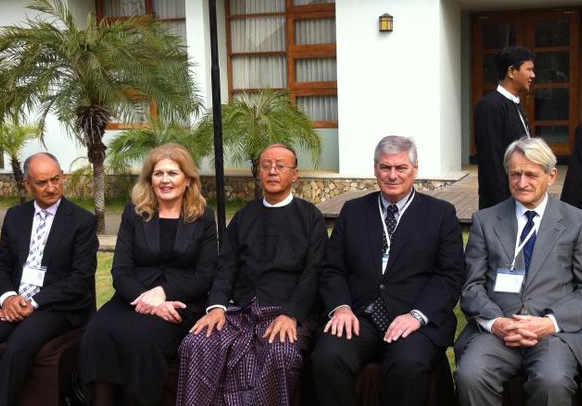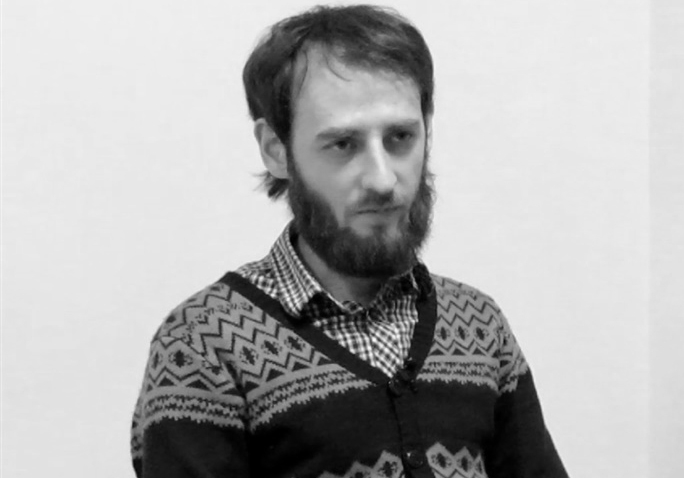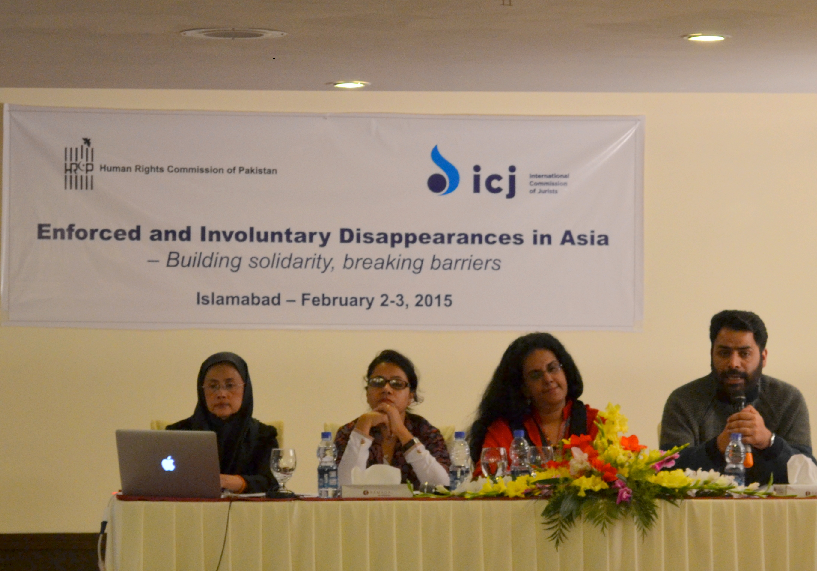
Feb 10, 2015 | News
The ICJ today expressed deep concern over the ruling of the Federal Court upholding the conviction on “sodomy charges” of opposition leader Anwar Ibrahim by the Court of Appeal under the colonial-era Section 377B of the Penal Code.
The decision today was on the final appeal against the March 2014 decision of the Court of Appeal, which overturned the 2012 High Court’s decision to acquit Anwar Ibrahim (photo) of “sodomy charges”.
The ICJ has called on Malaysia to repeal Section 377B, which criminalizes consensual same-sex relations.
The Federal Court also upheld the Court of Appeal’s decision to sentence Anwar to five years’ imprisonment.
“It is clear from the decision of the Federal Court today that the Government of Malaysia has once again inappropriately used Section 377B of the Penal Code against its political opponents,” said Justice Elizabeth Evatt, Commissioner of the ICJ who was in Putrajaya to observe the proceedings.
“This is deplorable, especially since Section 377B criminalizes consensual same-sex relations and thereby violates a range of international law and standards, including on the rights to privacy, non-discrimination and equal protection,” she added.
This relic of British law has long since been abandoned in the United Kingdom, but is still in force in Malaysia.
However, in the last few years, it has only been used against opposition leader Anwar Ibrahim.
The conviction today amounts to the second sodomy conviction for Anwar Ibrahim within the past 14 years.
His first conviction in August 2000 resulted in an imprisonment term of nine years. That decision was overturned by the Federal Court in September 2004.
The ICJ recalls that such “sodomy” charges cannot be considered recognizable criminal offences under international human rights law and standards.
“The criminalization of consensual same-sex conduct is in contravention of a number of human rights, including the right to dignity; equality before the law and equal protection of the law; non-discrimination; liberty and security of person; privacy; opinion and expression; association and peaceful assembly,” said Emerlynne Gil, ICJ’s International Legal Adviser for Southeast Asia, who also observed the hearings.
“Anwar Ibrahim should never have been investigated, charged with, tried, let alone convicted of and sentenced for such charges. The confirmation of his conviction and sentencing on these charges are an affront to human rights and the rule law,” she added.
The ICJ also noted with concern that the right to a fair trial of Anwar Ibrahim was violated in a number of respects, particularly his right to be presumed innocent.
Under international law, a person charged with committing a crime is considered innocent until proven guilty. Hence, this imposes upon the prosecution the burden to prove his guilt beyond reasonable doubt.
“In this case, however, it appeared that the Court of Appeal adopted an approach wherein the burden was on Anwar Ibrahim to prove that he had a credible defense, rather than raising reasonable doubt as to the prosecution’s case,” Justice Evatt said.
The ICJ says that by dismissing the final appeal of Anwar Ibrahim, the Federal Court has in effect adopted the same approach of the Court of Appeal to these issues.
This decision is a clear setback for the rule of law in Malaysia and is incompatible with the presumption of innocence principle, the Geneva-based organization adds.
Anwar Ibrahim has now exhausted all avenues of appeal and has immediately begun serving his sentence.
The ICJ observed the hearings in this case before the Court of Appeal in September 2013, February 2014, and March 2014, and before the Federal Court from 28 to 30 October 2014.
Elisabeth Evatt, a former judge of the Australian Federal Court and Commissioner of the ICJ, acted as the trial observer on behalf of the ICJ at the Court of Appeal and the Federal Court.
Contact:
Emerlynne Gil, International Legal Adviser, tel. +662 6198477 ext. 206 or email: emerlynne.gil(a)icj.org

Feb 9, 2015 | News
Myanmar should continue working with all stakeholders, including affected communities and civil society, to promote a legal framework that balances investors’ needs with human rights, said the ICJ today.
The call comes as the government enters a critical phase of establishing its new law governing investments in the resource-rich country.
“This is a critical moment for the economic development of Myanmar. The laws it implements now will shape investment, economic development and, in turn, human rights for the foreseeable future,” said Daniel Aguirre, ICJ International Legal Advisor. “It is imperative that drafting is not rushed and that laws take into account international human rights laws and standards.”
ICJ has been working directly with Myanmar’s Directorate of Investment and Company Administration (DICA), as well as with Myanmar civil society, on investment law and their potential impact on the human rights of all people in Myanmar.
The International Finance Corporation, in support of DICA, has produced a Draft Investment Law designed to consolidate the Foreign Investment Law (2012) and the Myanmar Citizen Investment Law (2013) to create a level playing field for both local and foreign investors. DICA has now opened the process to civil society consultation.
ICJ conducted a workshop with DICA on bilateral investment treaties in July of 2014. In November, the ICJ submitted feedback on the Draft Investment Law providing expert analysis and flagging issues of concern.
An initial consultation on the Draft Investment Law took place on 29 January 2015. The ICJ along with other civil society organizations met with the IFC and DICA.
“The ICJ is encouraged by DICA’s willingness to consult civil society, including international non-governmental organizations, and hear concerns about investment laws and their potential to curtail important regulations designed to protect, promote and fulfill human rights,” said Aguirre. “The ICJ looks forward to formal engagement in a consultation process that will include both national and international civil society.”
The ICJ remains concerned that the Draft Investment Law establishes significant rights for investors without protecting the rights of those affected by business activity.
The Draft Investment Law would require investors to follow national laws without acknowledging that the existing national legal framework does not adequately protect human rights or provide remedies for those whose rights have been violated.
Furthermore, the Draft Investment Law does not establish or protect Myanmar’s ‘right to regulate’ to protect human rights or other social or environmental needs.
Investment law should indicate Myanmar’s obligation to enact necessary regulations for the protection of human rights, including economic and social rights such as the right to health, in the future in order to avoid legal disputes when adopting these regulations.
“The Draft Investment Law’s proposed legal framework would provide all investors the right to be consulted and challenge any new national law or regulation that may impact their profits,” said Aguirre. “This framework would allow businesses to challenge government policies aimed at addressing legitimate needs within the country, and it could create a regulatory chilling effect in which Myanmar’s government would find itself in the troubling position of evaluating whether the passage of new social policies would lead to costly lawsuits from investors.”
“The draft Law as currently formulated runs the risk of hindering progressive regulation to protect human rights in Myanmar,” said Aguirre. “The ICJ is encouraged that DICA has begun meeting with non-governmental groups and believes that an effective and meaningful consultation will help address key concerns about the Draft Investment Law. The ICJ looks forward to working with the Myanmar Government, with the IFC, and with all other concerned groups in order to promote a law that balances investors’ needs with human rights.”

Feb 5, 2015 | News
Myanmar must follow through on promising efforts to improve the independence and accountability of its legal system, and particularly its judiciary, said the ICJ today at the launch of one of its landmark book in Yangon.
The ICJ launched today the Myanmar language version of its Practitioners’ Guide to the Independence and Accountability of Judges, Lawyers and Prosecutors.
“The judiciary in Myanmar has taken important steps towards asserting its independence from the other branches of government, but we heard repeatedly from the judiciary that they still face significant obstacles in this regard,” said Wilder Tayler, ICJ’s Secretary-General.
The book launch wrapped a series of discussions regarding judicial ethics and the rule of law with the Supreme Court of the Union of Myanmar, as well as with the parliamentary Committee on Rule of Law and Tranquility.
The ICJ’s Practitioners’ Guide n°1 is the first of its kind to be published in the Myanmar language providing detailed references to international and comparative standards on the independence and accountability of judges and lawyers.
“The Supreme Court emphasized its belief that an independent judiciary plays a key role in ensuring access to justice and the protection of human rights, but with independence must come accountability,” Tayler added. “The Myanmar judiciary must be accountable not just in deciding cases according to the law and facts, but also as a separate and equal branch of the government, and ultimately, to the people of Myanmar.”
In the course of its discussions at an earlier workshop in Naypyidaw, the ICJ was repeatedly told that the judiciary is trying to address challenges to its institutional independence, as well as the independence of individual judges.
Corruption, which remains a serious problem throughout all social sectors, including the judiciary, interferes with the judiciary’s ability to provide a remedy for human rights violations and bringing perpetrators to justice.
Undue influence by powerful political and economic actors continues to hamper the push for greater trust and credibility for the judiciary among the general public.
“As we heard at the workshop, at all levels of the system, from the Supreme Court to the Townships, a lack of resources, poor working conditions and low remunerations contribute to an environment where the temptations of corruption, or outside pressure, undermine judicial independence and impartiality,” said Tayler.
“We also heard strong support from all levels of the judiciary for establishing a judicial code of conduct that incorporates international standards and best practices in response to the demands of the people of Myanmar for more rule of law. Producing such a code, and implementing it, would go a long way toward increasing the judiciary’s independence and accountability,” he added.
Wilder Tayler was joined by a senior panel of international legal experts on judicial integrity, including three ICJ Commissioners: Justice Azhar Cachalia of the Supreme Court of Appeals of South Africa, Justice Radmila Dicic of the Supreme Court of Serbia, and retired Justice Ketil Lund of the Supreme Court of Norway.

Feb 5, 2015 | News
The ICJ is concerned by yesterday’s attack on lawyer Murad Magomedov in Makhachkala, near the Supreme Court of Dagestan building. The ICJ calls on the authorities to take effective measures to guarantee the security of lawyer Magomedov.
The attack took place during a break in a Supreme Court hearing in which Murad Magomedov was defending his client, Akhmed Israpilov, on charges of terrorism.
The lawyer was severely beaten by a group of five people, and sustained serious head injuries.
He was taken to the Republican Central Clinical Hospital, where he remains, recovering from concussion, multiple injuries and fractures of the jaw.
“This is yet another in a series of physical attacks against lawyers in Dagestan and shows the urgent need for the authorities to take effective measures to protect lawyers in the region,” Temur Shakirov, ICJ Legal Adviser, said today. “Both local and federal authorities in the Russian Federation must ensure a prompt investigation leading to those responsible for this violent act being brought to justice.”
The UN Basic Principles on the Role of Lawyer provide that “where the security of lawyers is threatened as a result of discharging their functions, they shall be adequately safeguarded by the authorities”.
Under international human rights law, the State must take steps to protect the security of persons who the authorities know or ought to know are under threat, and must ensure an independent, prompt, and thorough investigation of any attacks on the life or physical integrity of individuals.
Murad Magomedov has worked as a lawyer with “Memorial” Human Rights Centre since autumn 2014 and represents individuals affected by of a “special operation” in Dagestan’s Vremenyi village in September 2014. In this case Magomedov does not act as a Memorial representative.
The ICJ has previously highlighted cases of assault and killing of lawyers in Dagestan.
Contact:
Róisín Pillay, Director, Europe Programme, roisin.pillay(a)icj.org
Temur Shakirov, Legal Adviser, Europe Programme, temur.shakirov(a)icj.org

Feb 3, 2015 | News
In partnership with the Human Rights Commission of Pakistan (HRCP), the ICJ convened a two-day conference in Islamabad on 2-3 February 2015.
The conference brought together civil society activists, lawyers and journalists from across Asia, including Thailand, the Philippines, Sri Lanka, India, Nepal and Pakistan with experience of working on enforced disappearances in the their national contexts as well as regional and international forums.
The participants expressed alarm at the continuing practice of enforced disappearances in the region and regretted that a culture of moral, political and legal impunity prevented perpetrators to be brought to justice.
They also urged their respective states to promptly ratify the International Convention for the Protection of all Persons from Enforced Disappearance, criminalize enforced disappearances, and meet their obligations under international law to provide remedy and reparations for human rights violations.
At the end of the two-day event, the participants of the conference adopted a resolution (download below) resolving to work together to address the common challenges and hurdles they encounter in their work on enforced disappearances.
Asia-Enforced disappearances Resolution final-Advocacy-2015-ENG (full text in PDF)
Asia-Enforced disappearances Resolution final-Advocacy-2015-URD (full text in PDF)








